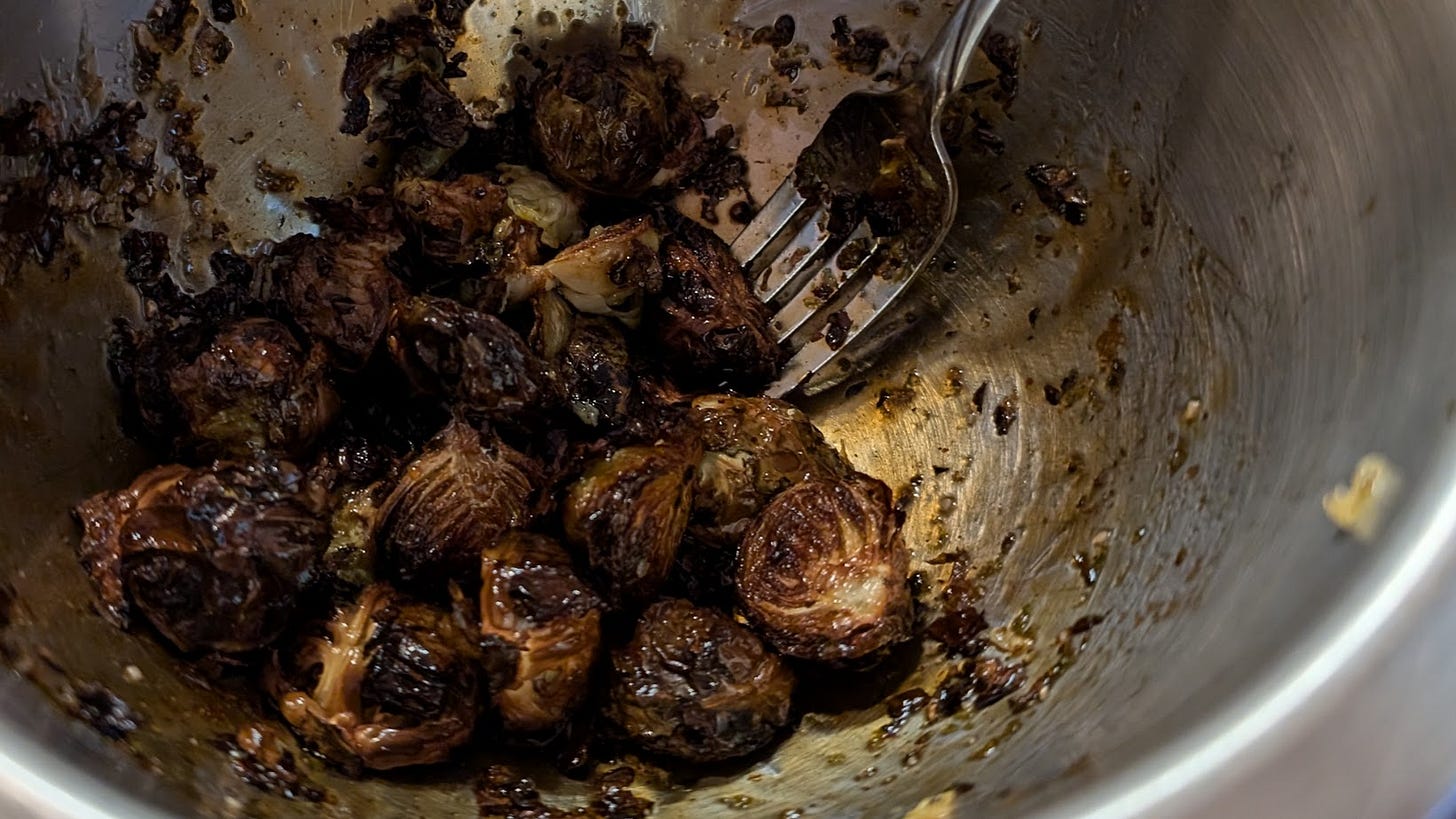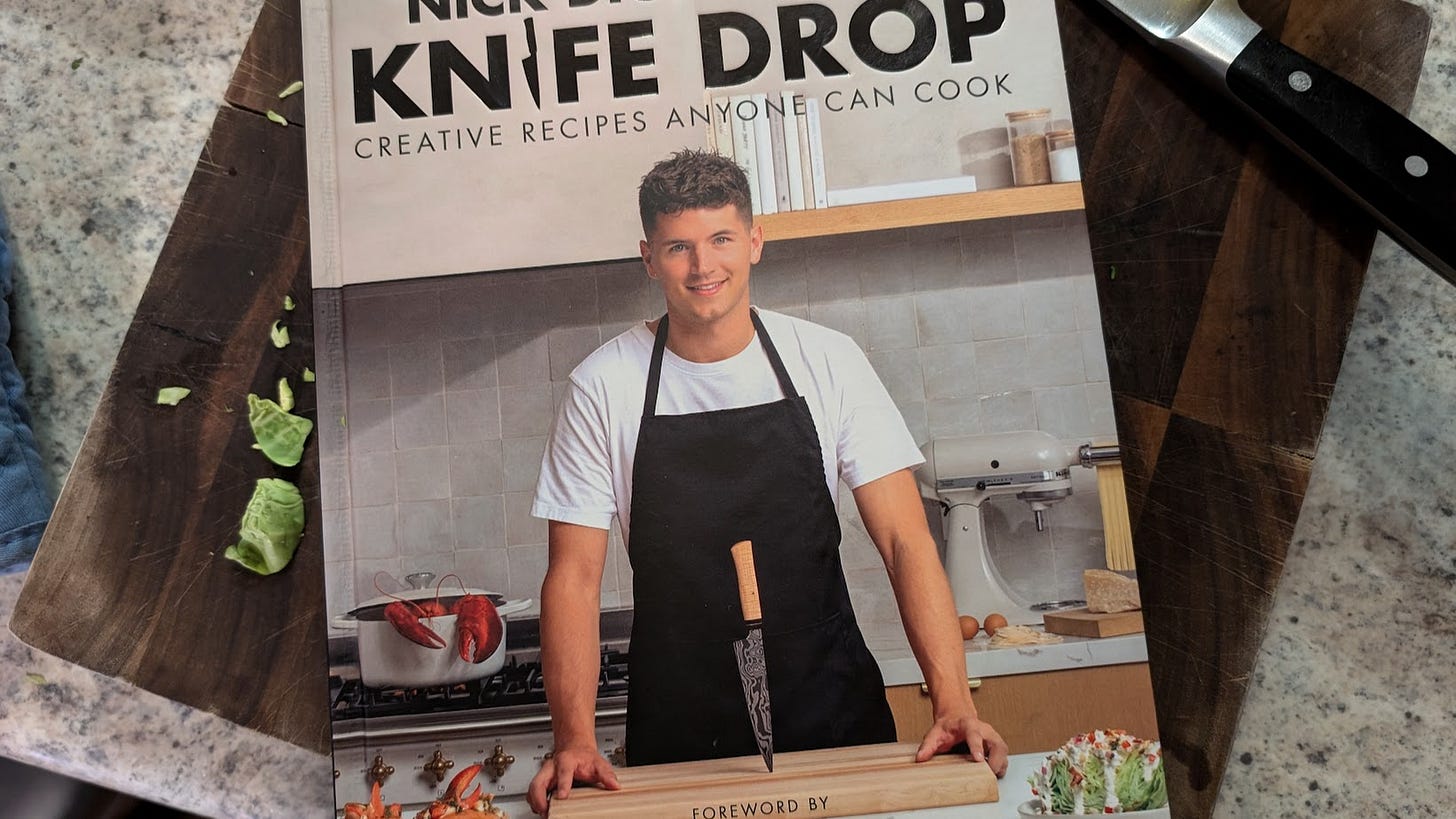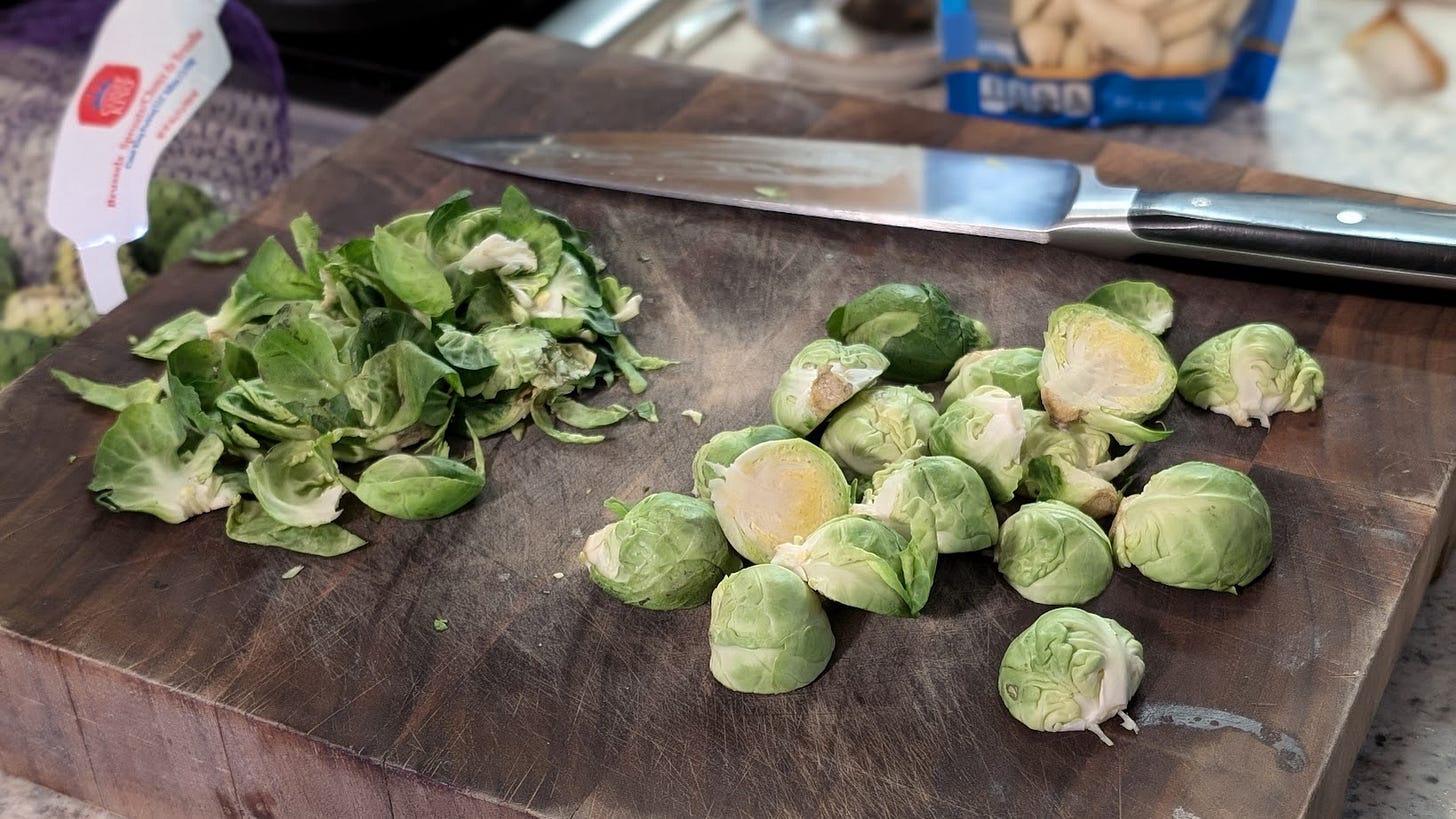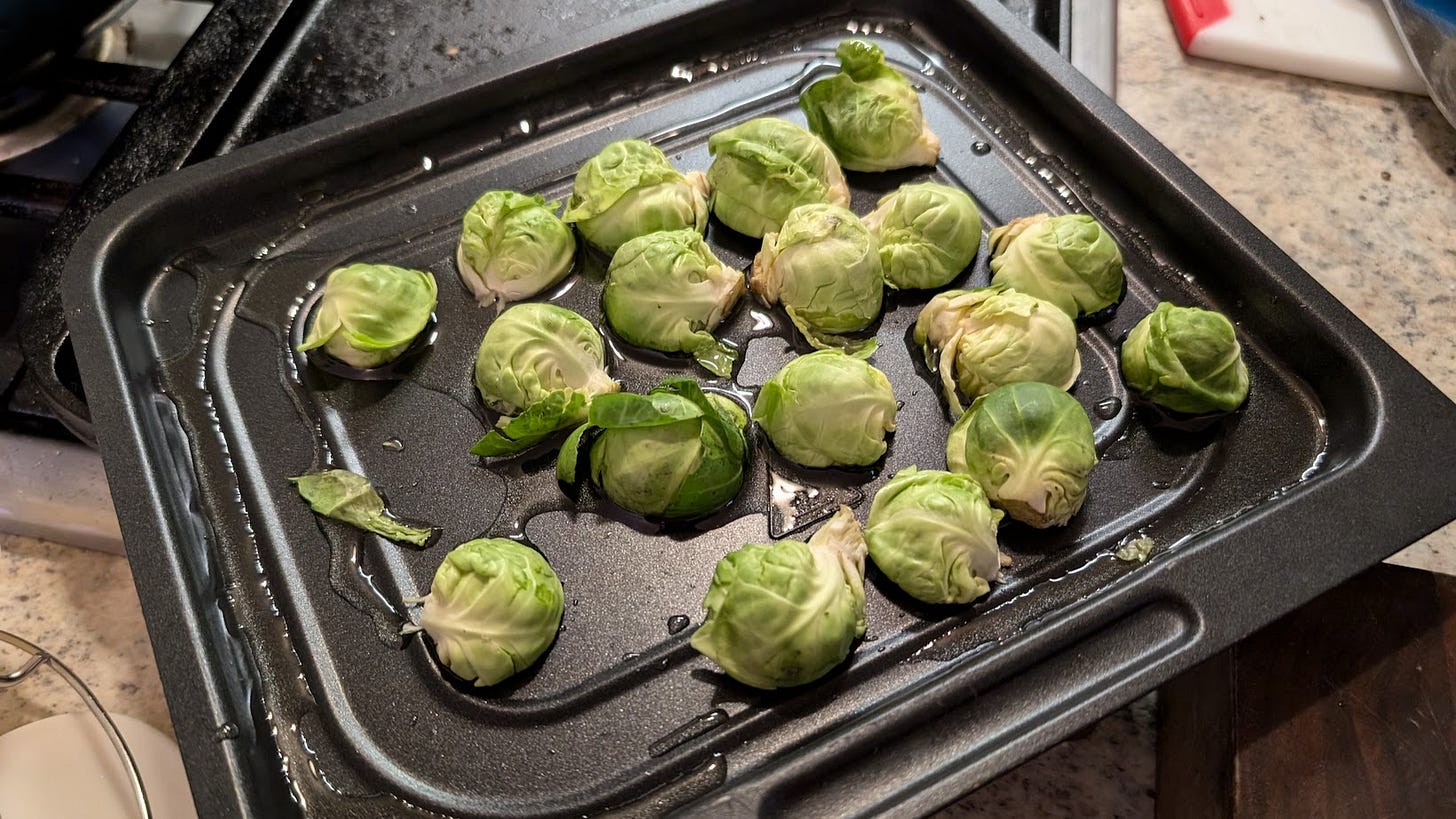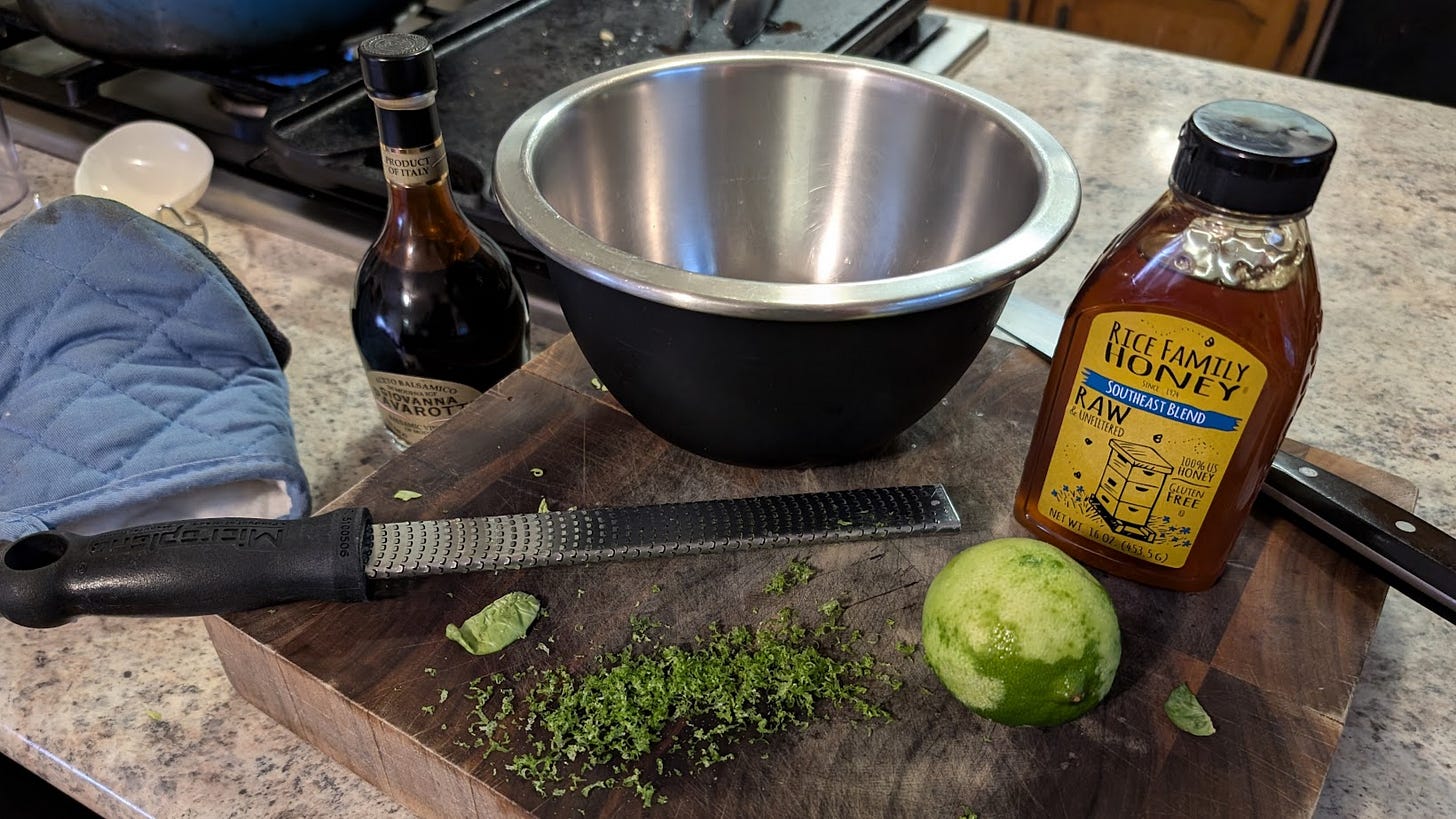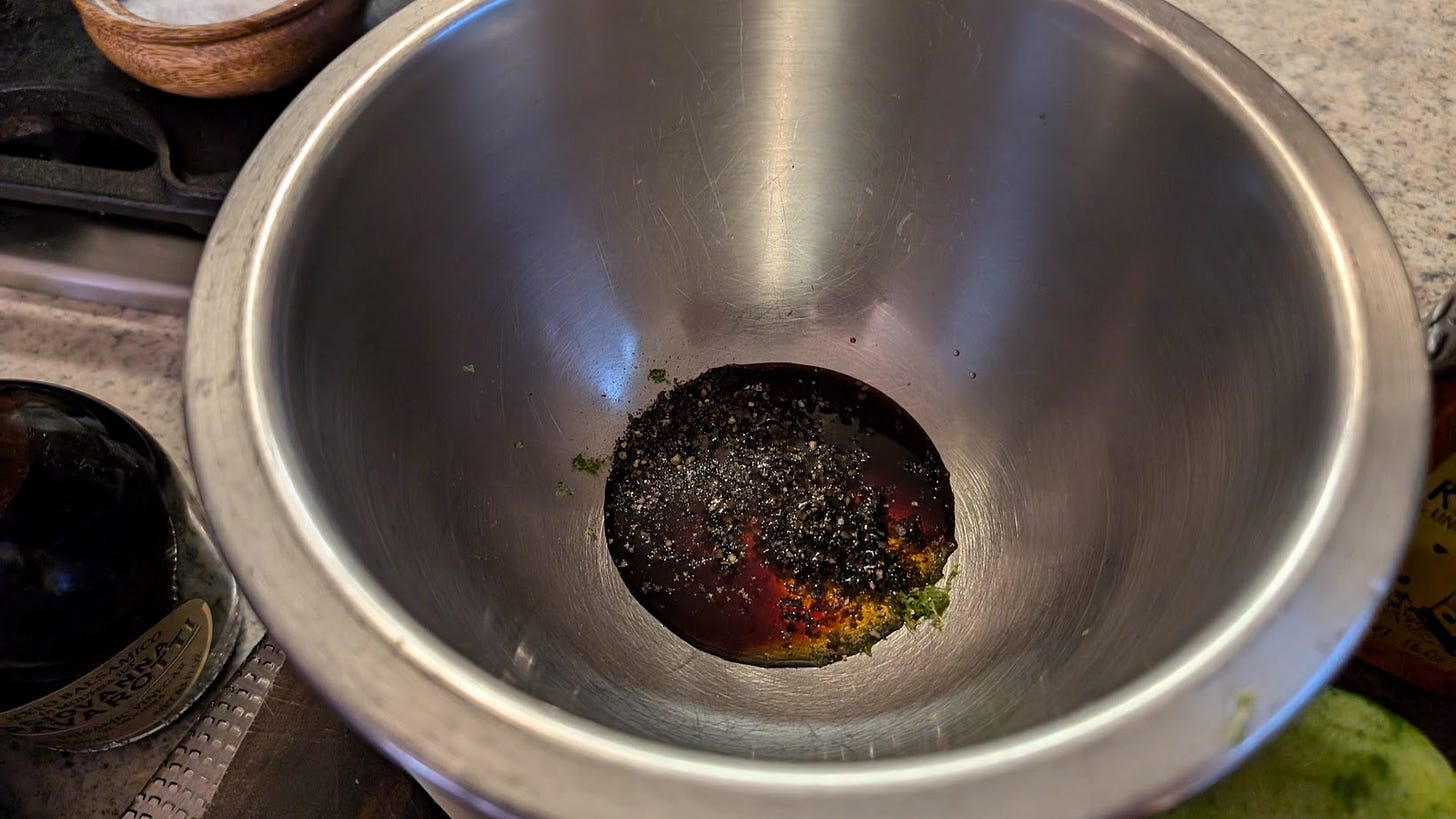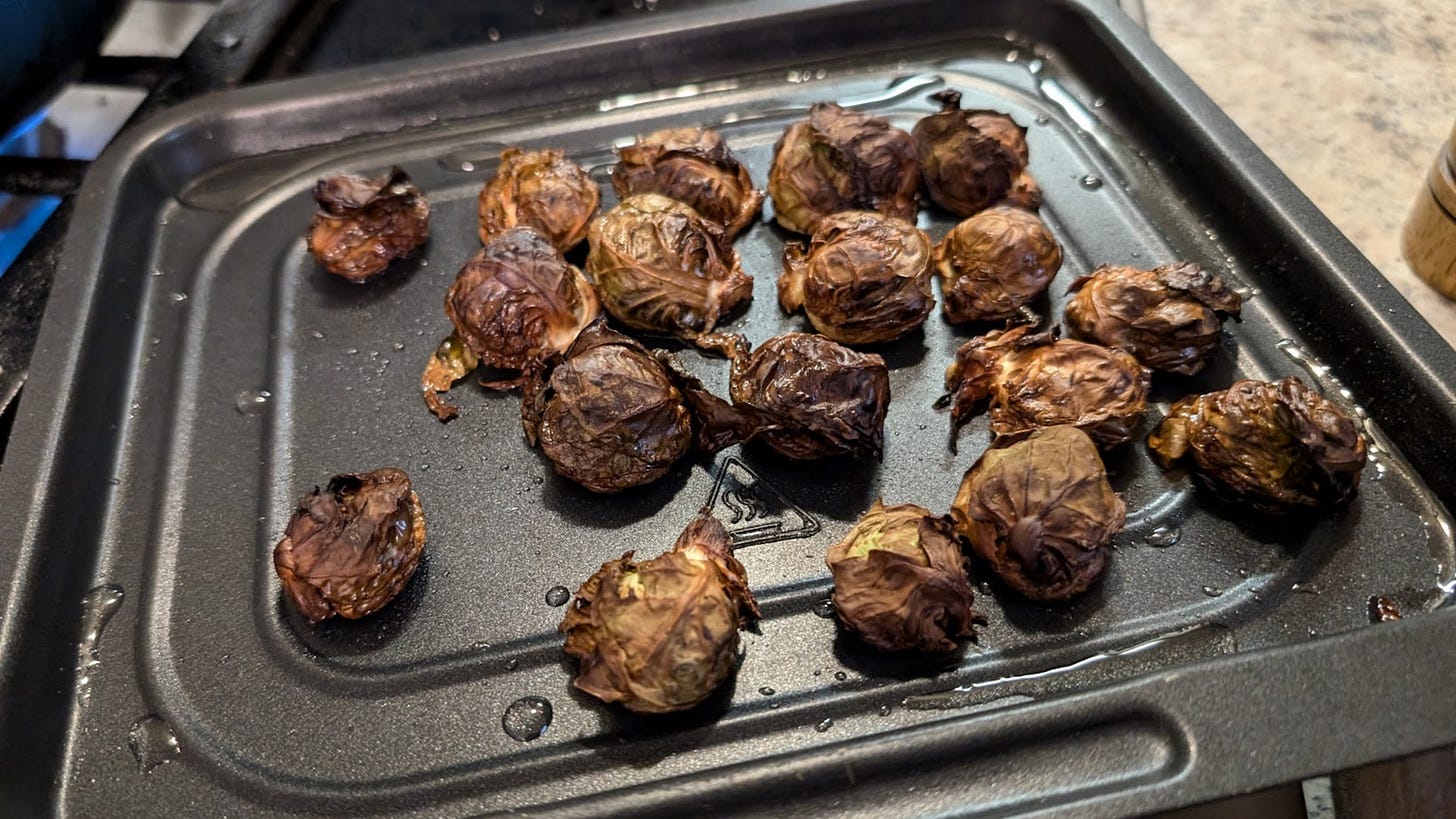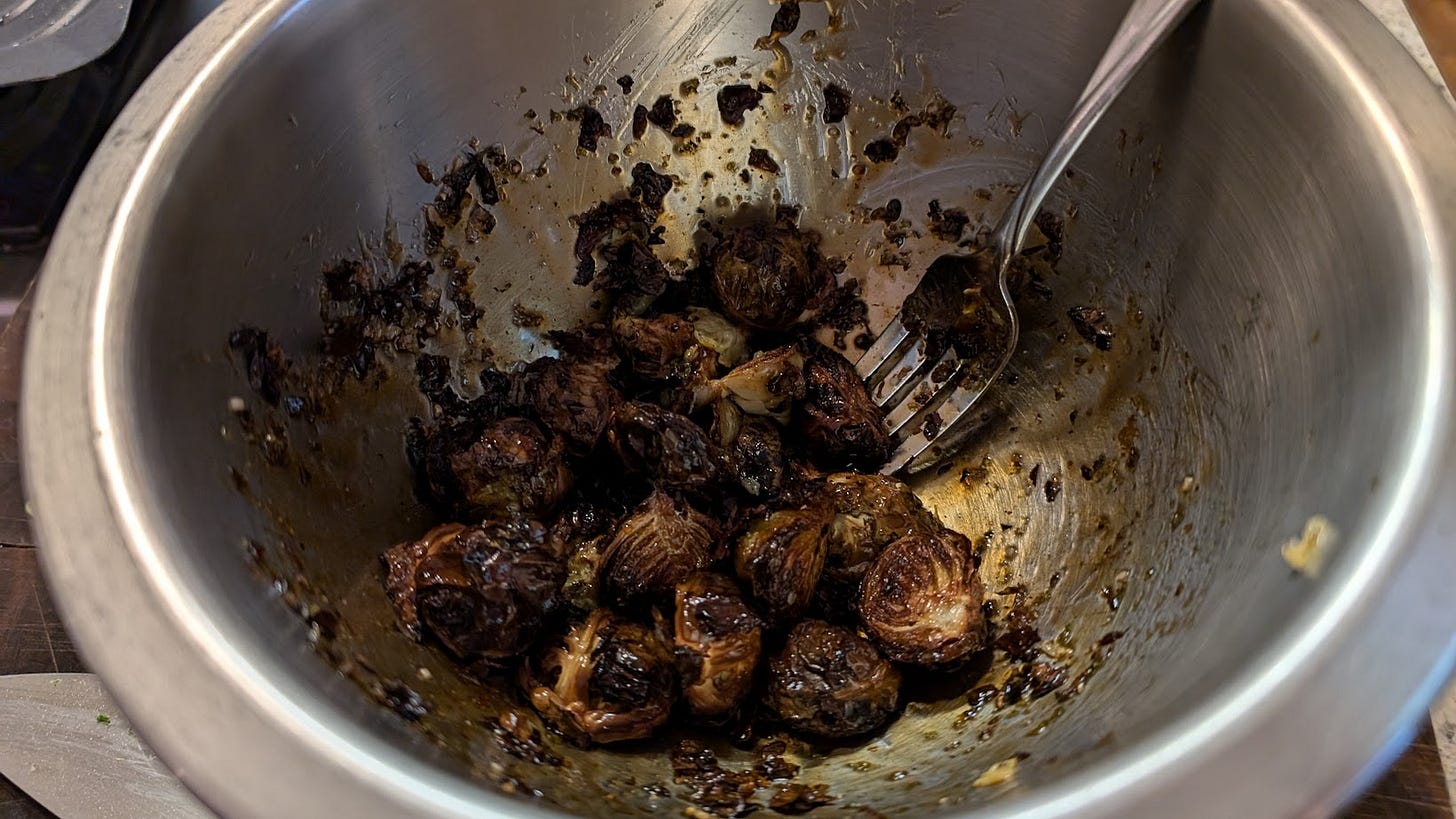Sweeter-Than-Intended-by-the-Dutch Brussels Sprouts
They could have had fries.
According to The Food Encyclopedia, “Marc Antony is said to have chewed Brussels sprouts for days before the battle of Actium,” because ancient—still current in his time—wisdom told him eating Brussels made you clever.
Antony started with 500 ships, heavy ramming vessels in large part. Octavian came with only 250 but they were light and equipped with efficient siege and boarding innovations. Agrippa, in command of Octavian’s fleet, raided mercilessly for days, in and out raids on Antony’s peripheral forces; gadfly stuff but relentless. The battle proper kicked off on September 2, 31 BC. By that time Agrippa and desertion had whittled away Antony’s fleet. Some sources say just 140 ships remained, some say as many as 230. To make matters worse, a defector delivered Antony’s battle plans the morning before.
By the end of the day, Cleopatra took her reserves and rowed for the hills with Antony following after. Octavian owned the seas and, with a little consolidation, the Empire. Brussels sprouts didn’t help. Not sure what he ate but, as Emperor Augustus, Octavian found a fondness for the phrase “Quick as boiled asparagus.”
The Romans called Brussels sprouts bullata gemmifera, which translates as “diamond makers.” They were expensive partly because they had all manner of powers ascribed to them: aside from making Antony smarter, Pliny touted them as a hangover cure. Mainly, they were expensive because they grew wild in Western Europe. Eventually someone got the sense to cultivate the things, but in Antony’s time they were foraged, making them a hard to find delicacy. From harvest, there’s three to five weeks until rot. Transportation was what it was so not many made it from Western Europe to anywhere beyond another slightly farther from the source part of Western Europe. Antony paid to be clever.
I couldn’t stand the things growing up. In 1999, a chef friend took offense to my dislike and swore he’d turn me around. He did or he didn’t. His baby step approach began with a heap of halved sprouts sauteed with bacon and smothered in cream. I can’t say it was the sprouts I liked. Just a few years earlier, Dutch companies spliced or cross-bred, grafted, or alchemied plants and their new, less bitter Brussels sprouts revolutionized the market. I’d sworn the things off as a kid, a badge of emancipation, and didn’t look back. My chef friend whipped up a dish I liked, but there were shenanigans at work. The vegetable on the plate wasn’t the same vegetable from my and Marc Antony’s childhood. He swayed me, though. Whether it was the modern model plant or taste bud degradation that comes with age, I kinda liked em.
The Dutch, who’ve never gotten caught investing too much time or energy in a single crop at the expense of others, export the most Brussels sprouts. The English grow around the same amount as the Netherlands but keep it all for themselves; little to no export. They probably smear beans on them for breakfast. Here in the U.S., we’re likely to get ours from California or Mexico, particularly Baja. I don’t know why it’s the good growing places with fields devoted to the species.
It’s a winter crop and the harvest is long, September to March in Northern Hemisphere temperate areas and the picking process is staged, at least when harvested by hand. I’ve no idea what mechanized improvements are at work, but traditionally the topmost layer of bulbs, which grow in helices around the stalk and below the leaves, are removed. The ones immediately below mature and then in turn are removed, and so on until spring. They grow like mad in dreary England. I guess they grow that much better off winding Fresno highways, but wouldn’t everything? There are fussy crops grown in less ideal places. Shouldn’t they switch? In ignorance I wonder about the best and highest use of land.
Waverley Root writes in Food by Waverley Root,
“There is a tradition that Brussels sprouts were grown as early as 1200 in ‘Belgium’—there was no Belgium then, though there were Belgians—but the first description of them appeared only in 1587, and not until a century after that did they attract the attention of anybody but botanists.”
I have a shirt that I won’t wear during football games because I wore it during an Alabama “loss” to Tennessee where a clean Kool-Aid McKinstry interception that probably would have sealed a win for Alabama was flagged for pass interference by a referee thirty yards away from the play. The shirt has a loser stink about it. What happened to Brussels sprouts? Did the Dark Ages hide them away for rediscovery? How did a birth-of-empire delicacy vanish from the table, relegated to an oddity for taxonomy debates? Was it Actium?
The Belgians who weren’t Belgian weren’t the only ones cultivating Brussels sprouts. French fries are supposedly Belgian in origin. Instead of proudly touting Belgian fries, the country gave the French a culinary PR coup and left themselves grasping for sweet salvation from Dutch lab nerds while kids the world over recoil at their most prominent eponym, left throwing up waffle chaff to keep the national brand in good graces. The Austrians convinced the world that Beethoven was Austrian and Hitler German. The Belgians should spend a little time learning the Austrian shine.
My wife loves to cook Brussels sprouts as there’s probably something wrong with her nose. Since my chef friend turned me on to them years ago, I’ve weaned myself off the bacon and cream concoctions and found I like the bulbs on their own (albeit Dutch sweetened) terms, but I’m typically smart enough to satisfy my Brussels sprouts cravings in restaurants with industrial exhaust hoods pulling five hundred cubic feet per minute at an 80%+ capture efficiency. They stink. Horribly. And not in the way that you don’t notice until you leave the room and come back in. All the perfumed joys of coq au vin fumigation turn against you and linger. The culprit chemical is a sulfurous sugar called glucosinolate sinigrin and you have to deal with it if you want the goods at home.
We’ve found that roasting keeps the sulfur smell to a minimum. You aren’t getting off scot-free, but whatever venom gets aerosoled is trapped in the poor oven so exposure is minimized by a reliable oven light bulb and well oiled door hinges.
My youngest son is a fan of Nick Digiovanni, a winner of Gordon Ramsay’s Master Chef. My son is thirteen, and on the cover of his cookbook, Digiovanni looks possibly a few years older, like he’d be in charge of after school safety patrol. Judging a book by its cover is, pace everybody who isn’t me, a good idea. People put a lot of work into book covers. Nick Digiovanni’s Knife Drop is almost an exception in that whoever designed the cover did a pretty good job given the newspaper delivery earnestness the author can’t be blamed for. If the kid makes you feel old: bad cover, good book. If not: good both. You should buy it.
In it, there’s a recipe for “Crispy Brussels Sprouts” and it’s delicious done exactly as he tells you. That said, it doesn’t require measurements if you’ve eaten before. His contribution is in choosing a fantastic assembly of ingredients. Throwing it together is a matter of preference and whim. My wife calls such things “vibes and eyeball” dishes. Our interpretation is loose.
Sweeter-Than-Intended-by-the-Dutch Brussels Sprouts
- Brussels sprouts
- honey
- lime zest (and a little of the juice if you’re in the mood)
- balsamic vinegar
- extra virgin olive oil
- salt and pepper to taste
Pre-heat an oven to 400°.
Pick off the outer later of leaves as you would a cabbage.
A chef friend—a different one than the bacon/cream/sprouts guy—liked to peel off the first layer and discard and then peel off the next two or three layers to crisp in the oven for garnish. One time he plated a Duck breast on a pool of blueberry compote and sprinkled crisp sprout leaves all around. It looked great. Don’t do that now. Keep it in your head, though.
Cut the top layer-less bulbs in half.
Sprinkle halves with salt and toss very lightly with olive oil. Drizzle some olive oil on a baking sheet and add the sprouts. They don’t have to be perfectly spaced or anything like that. Not piled will suffice.
Bake for 15 minutes or until browned and crispy.
Take the honey, oil, and vinegar and mix it in a bowl. I like about 50/50 honey to balsamic and then slightly more olive oil than either. I end up correcting and adding more balsamic so “vibes and eyeballs.” As to how much, you’re just coating the sprouts. It doesn’t take much.
Put the sheet in the oven for 15-20 minutes. Some are bigger and take more time.
Check and be sure they’re crisp. Back in the oven if not. Otherwise, toss in the bowl, check for salt, and add pepper if desired.
I pretty much denude a lime. Sprinkle with the zest to taste.
This needs steak. Maybe a Hanger with a side of smooth mashed potatoes? I don’t know that this beats bacon and cream as indoctrinators, but it’s gotta be close.
You might give the asparagus people a wide birth, just in case.


